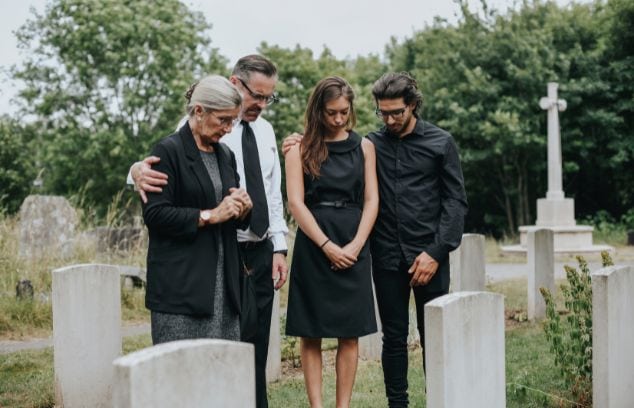When Is the Right Time To Offer Condolences?

Saying Goodbye in 2022: 5 Notable Deaths
January 27, 2023
10 Things You Should Never Say at a Funeral
February 13, 2023When someone passes away, certain individuals should make immediate contact with that person’s loved ones while others should wait to speak up. Following the proper etiquette is important to avoid making the bereaved uncomfortable. Here, we’ll explain when it is the right time to offer condolences to all parties involved.
For Family and Close Friends
If you are a family member or close friend of the recently deceased, it’s perfectly acceptable to make immediate contact. Calling and texting are the most common communication methods, but you may see individuals or the family in person if this is more suitable for the situation. The family’s needs and wishes at that moment will determine whether you should make contact in person. Otherwise, calling and texting will be the standard before the funeral.
Friends of the Family
Distant friends and those who knew the deceased are expected to keep their condolences private until after the wake or funeral. With all the incoming calls, letters, and emails the bereaved are receiving, it’s considerate to wait. At the very least, you might leave a record of your attendance via a memorial prayer card. This way, the family knows that they have support outside of the family and that those people honor and understand their situation.
Acquaintances
General acquaintances can reach out a bit later, typically via letter. They didn’t have as strong of a relationship with the deceased as most of the other friends and family. For that reason, a letter or card will be more than enough, and the family would appreciate it the most. Expectations for acquaintances are generally low but always accepted and loved.
Knowing when to offer condolences can be tricky, depending on your relationship with the individual. The closer you are, the sooner you should typically reach out, although every situation is different.


